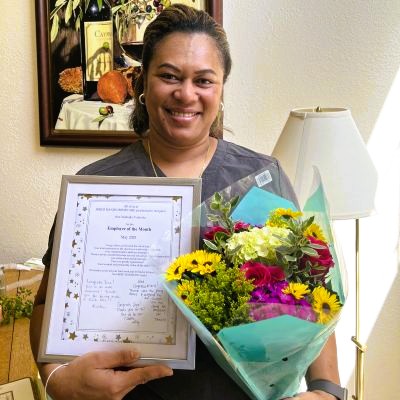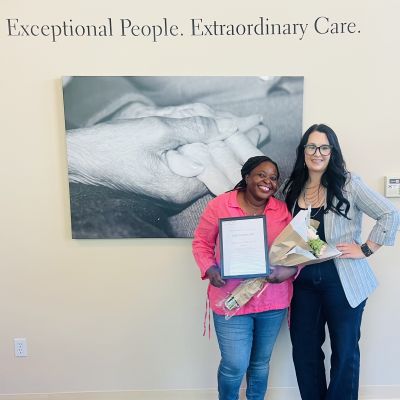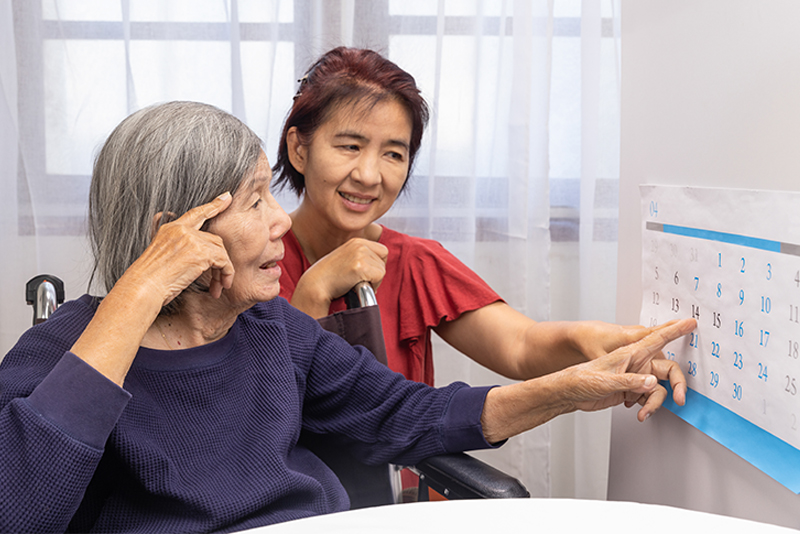What You Need to Know About End-of-Life Dementia Care

Caring for a loved one as they near the end of life is an incredibly personal journey. When Alzheimer’s disease is part of this experience, the path can become even more intricate. Unlike many other terminal illnesses, dementia progresses in unpredictable ways, requiring us to adjust our approach to end-of-life dementia care.
Identifying End-of-Life Signs in Dementia
In many diseases, the end-of-life stage is marked by noticeable changes in areas such as eating, sleeping, and socializing, often appearing two to four months before death. However, with Alzheimer’s disease, these indicators can emerge much earlier, sometimes even years in advance. These are the key signs to watch for:
- Extended Sleep Patterns: Long periods of sleep can occur well before the final stages of life in someone with dementia. While this may be an early sign, it can also continue over a prolonged period of time.
- Changes in Eating Behavior: One of the clearest indicators that the end of life is near for someone with dementia is a shift in eating habits. Refusal to eat or difficulty swallowing often signals the beginning of the dying process.
- Social Detachment: It’s common for individuals with dementia to withdraw from social interactions long before they are near the end of life. However, increased withdrawal in combination with other signs may indicate that the final stages are approaching.
Ways to Make the End-of-Life Transition More Comfortable
Understanding that a loved one with dementia may be nearing the end of life allows you to take important steps to ensure their comfort and dignity. Here are some practical ways to make their final moments more serene:
- Create a Tranquil Atmosphere: Establish a peaceful setting with soft lighting, calming music, and familiar objects that can help provide a sense of security and comfort.
- Engage Hospice Services Early: The sooner you bring hospice care into the picture, the more support and comfort your loved one can receive. Hospice professionals are experienced in end-of-life care and can offer much-needed guidance for the entire family.
- Offer Gentle Physical Care: Soft blankets, gentle massages, and comfortable positioning can reduce physical discomfort. Work closely with the hospice team to ensure pain is managed effectively.
- Celebrate Small Joys: Focus on the small, meaningful moments that can bring comfort and joy. Whether it’s a shared smile or a favorite song, these moments can create lasting memories.
- Maintain Daily Routines: A consistent routine can provide a sense of familiarity and reduce anxiety. Simple, enjoyable activities can help your loved one feel more at ease.
How Hired Hands Homecare Supports Families During the End-of-Life Stage
At Hired Hands Homecare, we are committed to helping families navigate end-of-life dementia care with compassion and respect. Here’s how we can support you:
- Emotional and Companionship Support: We go beyond caregiving by offering companionship and emotional support to both the person you love and your family. This can reduce the sense of loneliness and provide comfort during this emotional time.
- Coordination with Hospice: We work hand in hand with hospice care providers to ensure that every aspect of your loved one’s care is covered.
- Help with Household Tasks: With the added pressure of caring for a loved one, everyday tasks like laundry, cooking, and running errands can feel overwhelming. We take care of these responsibilities, giving you the time and space to focus on spending quality moments with your family and loved one.
We understand the emotional challenges that come with caring for a loved one in the final stages of Alzheimer’s disease. Our highly trained and compassionate caregivers are here to help you through every step of the journey. Contact us at (866) 940-4343 to find out more about our personalized in-home care services in Petaluma, Novato, San Rafael, and throughout the Bay Area.








Leave a Reply